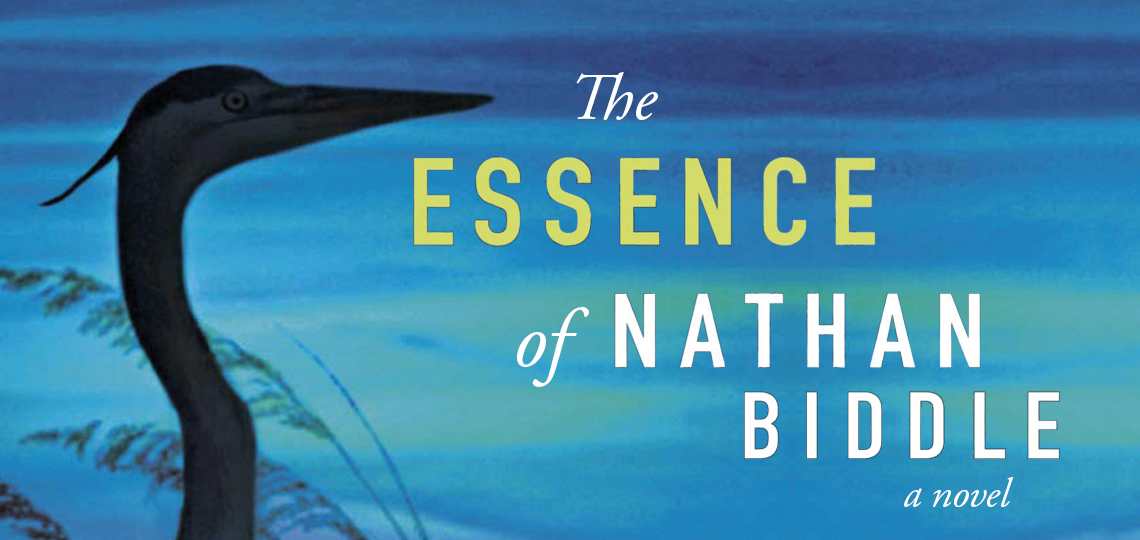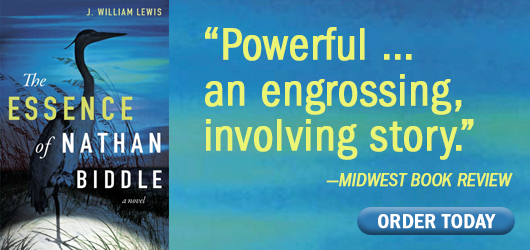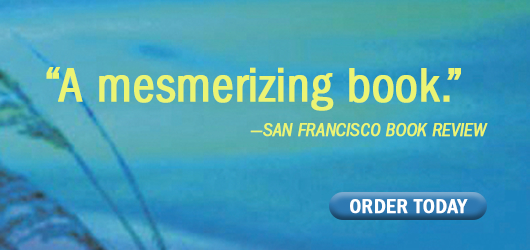Editor-in-Chief Matt Sutherland Interviews J. William Lewis, Author of The Essence of Nathan Biddle

Good fiction along the lines of Catcher in the Rye always turns our head, and this novel is the real deal. Our editor-in-chief tracked down J. William Lewis for some insight on how you model a classic, as he did so successfully in The Essence of Nathan Biddle.
Like a great many intellectual, pensive high school-age boys, Kit believes he is an original and doesn’t really believe anyone has much to offer him because they don’t know his unique, high-minded experience/reality. That attitude plays out in his relationship to his teachers and coaches, who view him as undisciplined. In essence, Kit dismisses pretty much everyone around him. So, Kit doesn’t want to be “part of the program,”—how should readers view his mid-1950s approach to life as it relates to the millennials of today? Similarly, the eighteen months of pandemic in our recent past has been especially tough on teens. Was that in mind as you lived inside Kit Biddle’s head while writing the novel?
The question of how millennials today may relate to Kit’s “mid-1950s approach to life” requires a little background music. Kit’s approach to life is, to a large extent, imposed on him by external circumstances, totally apart from his innate aptitudes and proclivities. Initially his isolation resulted simply from growing up on a farm in a small town and then from self-consciousness, even embarrassment, about the circumstances of Nathan’s death. As a matter of story-crafting, the imposition of isolation is intentional in that it provides the foundation and impetus for Kit’s search for meaning and his insular approach to understanding the behavior of the people around him and how he fits into and approaches the life he has been given. The conundrums are universal, not 1950s themes, and they are as pertinent to millennials as to any other generation. The questions of why you are and who you are lurk in the shadows of every person’s mind even if he or she has diversions or numbing devices that allow escape or avoidance.
You open the novel alluding to a devastating tragedy that happened in Kit’s family. How large of a presence does this play in Kit’s current state of angst and befuddlement?
The tragedies in Kit’s life are the initial sources of his bewilderment. A common theme of sociology (and some psychology) is that a person’s view of God is affected for good or ill by the father figure in his or her life. Kit’s Uncle Nat is the only father figure he can remember—his real father has died before Kit reached the age of five—and his father figure commits a heinous crime that Kit cannot rationally accommodate. What is Kit supposed to think when the only father figure he has ever known is incarcerated in a mental ward for committing an act of violence so out of character that Kit is virtually forced to look at the world around him through critical eyes: If God is like Uncle Nat, is he crazy or evil or is life simply absurd?
The hour-to-hour, minute-to-minute detail is reminiscent of Joyce’s Ullyses, and your novel’s connection to Catcher in the Rye is readily apparent. But there’s much more of a philosophical/spiritual thread to The Essence of Nathan Biddle. Where did you draw inspiration for the novel?
The story of Kit Biddle’s struggles was inspired by the disparate angst of Holden Caulfield in The Catcher in the Rye: I was struck not by the similarities but rather by the differences between the nature of the disillusionments and bewilderments I had as an adolescent and those expressed by Holden in his description of his life immediately before his commitment to the sanitarium. Why were we so different? The answer is, in part, that the circumstances of our lives were very different. The tragedy in Holden’s life that has thrown him off balance is the death of his little brother from leukemia but the instability probably resulted more from mistreatment by or perhaps just a lack of lateral support from his parents (he says at the outset that he doesn’t feel like getting into “my lousy childhood … and all that David Copperfield kind of crap”). He has been sent off to a boarding school; he avoids his parents when he returns home after being expelled; and then his parents commit him to a mental institution in California, across the continent from his family in Manhattan and near only to an older brother.
Holden is disillusioned and confused but the dire circumstances of his life have thrown him off balance and, for the most part, diverted him from existential frets. The Essence of Nathan Biddle attempts to do the opposite, ie, to focus the adolescent mind on the relevant existential and related issues by shoving them violently into his mind in the context of real and significant lateral support that keeps him from totally losing his balance.
We’d be remiss if we didn’t ask you to talk about the genesis of the title: The Essence of Nathan Biddle?
In the beginning, Nathan was a peripheral character except as the central victim of the crime, but he evolved and became a separate voice, almost in the function of a Greek chorus. A reader has suggested that Nathan does not really exist except as one of Kit’s imaginings (certainly not something I had in mind either thematically or as a matter of character development), and an intelligent reviewer has referred to Nathan as “a phantom:” “He seems to have been an almost otherworldly character when alive, and in death he appears to be something of a watching/guiding presence for Kit.” Although closer thematically, the genesis of the title is more mundane: As revealed at the end of the story, Kit was supposed to be Nathan and in a real sense he is Nathan. Even before he knows the truth, he senses that he in some way embodies the spirit of Nathan who appears to him repeatedly in broodings and dreams. The title of the novel presents the personal identity theme and the image on the dust jacket—the heron on one leg in the fluctuating light—presents the quandaries of the visible and the invisible essence of life.
Who’s the ideal reader of the novel, and why?
The story of Kit Biddle’s struggles with the questions of why he is and who he is should resonate with everyone. As Kit observes, we live for a long time before the questions even enter our minds. Are the questions any less relevant because they occur to us after we’ve been around for a decade and a half (more or less)? The best the human mind has been able to conceive is a theory for imposing meaning on our existence (in effect, a defining of who we are), but the question of why we are has eluded all except in the suppositions of faith. One of my nephews informed me that he does not “like to think about things like that,” a clear indication that The Essence of Nathan Biddle is not for him or anyone who wants to block out the imponderable. For those who think the why of their existence is relevant and even interesting, the novel offers a front-row seat to watch a hopefully sympathetic character struggle and fail to find the answers he desperately wants.
Are you currently working on another writing project? Will you share some details?
Some writers diligently write every day, often at the same desk and at the same time, but I do not write at all until I have a framework and at least tentative language for scenes in my mind. I often don’t know where the story is going or the import of the action. I have had more than one reader suggest that a sequel would be nice (an explanation of what happens to Kit and the loves of his life after he recovers from his injuries) but I have not pursued that notion because I don’t know what the book would be about other than perhaps just a love story. What passes for a love story in The Essence of Nathan Biddle is actually intended to be an extension of the reality/illusion theme, ie, the tendency of people to impute to others the traits that they find desirable or that they want the other person to embody. (I call this the Pygmalion syndrome: falling in love with the creations of one’s own imagination.) Perhaps the most direct answer to the question of whether I am working on another novel is that I am always working on a writing project in my mind but at this point I don’t know what it is with sufficient clarity to describe it. I can tell you it will not be suitable for Harlequin.
Matt Sutherland



